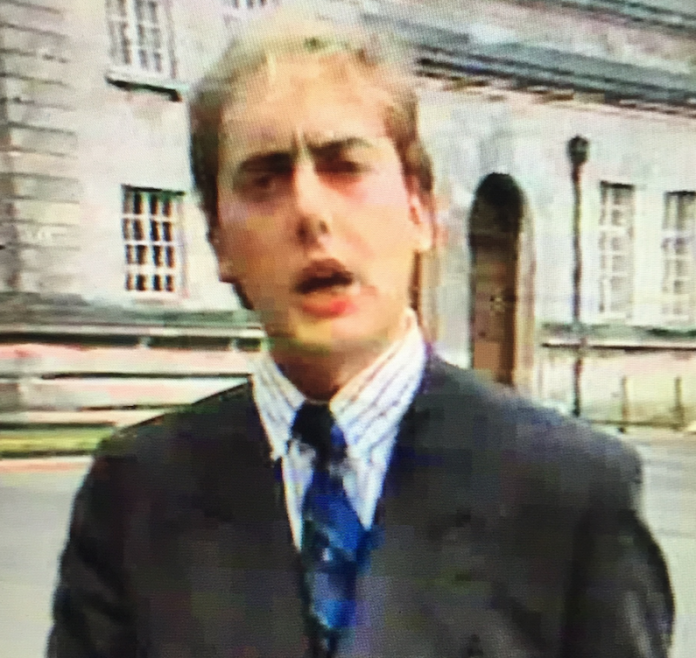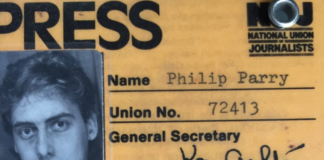- Wordy again part three - 16th February 2026
- ‘Lies, damned lies etc…’ - 13th February 2026
- Missing in action - 12th February 2026

After describing how he was helped to break into the South Wales Echo office car, recalling his early years in journalism at the start of a 34-year career, the importance of experience in the job, making clear that ‘calls’ to emergency services and court cases are central to any media operation, as well as the vital role of the accurate quotation, here our award-winning Editor Phil Parry offers rules on how to handle a media interview.
Here are some tips for you.
If you are ever in the unfortunate position of facing aggressive questions during a television or radio interview – disarm the interviewer.
Come over as friendly and reasonable.
It works every time.
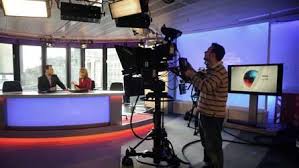
Also – if the audience believes the allegedly guilty party is reasonable and has a fair point, the interviewer will be put on the back foot.
After being a journalist in the BBC for 23 years, I feel now is the time to divulge some of the secrets!
Never, EVER, storm out of an interview, because you immediately look guilty.
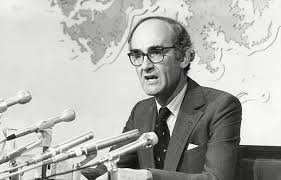
The former Defence Secretary John (now Sir John) Nott notoriously did it in a fit of pique when he took exception to the apparently innocuous phrase “here today and gone tomorrow politician”.
His career never fully recovered.

Storming out like this is extremely rare, but it has happened to me a few times during my interviews.

You always know you are on to a winner when you sense this is about to happen.
‘Just one more question will push him (and it usually is a him) over the edge and he will be gone’ you think!
All the reporter has to do then is shout questions at the disappearing back, like “why won’t you answer the question Mr xxxx ?”.
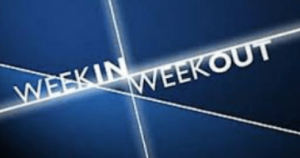
Two of the ‘walk-outs’ were during filming for the now-defunct BBC Wales Current Affairs series Week In Week Out (WIWO).
One was in an interview with a dodgy Government minister, and another was when I confronted a fraudster with the truth about her claims.
I think it is a vital role for journalists to hold to account those with influence over people’s lives.
It is why I am deeply upset that WIWO has now been axed after 53 years.


I could earn a fortune offering this sort of advice to corporations or Governments, yet here I am giving it away for free!
Whatever the rights or wrongs of the case you are investigating, remember that the sympathies of the audience can all-too easily be transferred from the interviewer to the person on the other end of the microphone.
If the reporter is on location it does not help that he or she is often out of shot or just represented by a voice.
That too makes the whole thing appear unfair in the minds of people watching or listening.

But techniques which unsettle the interviewer are the best ones.
Long before I started The Eye, a senior Welsh politician was before me and the TV camera on BBC Wales Today, after slogans had been daubed on a Government building.
He hadn’t done it, but he was defending those who had, and I was preparing to give him a hard time.

Before the interview started, he leant over and touched me.

“That’s a nice tie,” he whispered.
“Where did you get it?”
I was of course, completely floored and stuttered out my ‘aggressive’ questions.
On another occasion I filmed a report for BBC 2 Newsnight about the noises coming from a home for disabled people.

The manager of the home was in front of me, but before the camera was rolling he said: “You look rather tired, are you all right?”.
Again I was completely flummoxed, and my questions missed their target.
Another tactic is to keep your answers very short.

A curt “yes” or “no” is a nightmare for interviewers because it throws the ball back into his or her court.
There is no onus on you to fill space, but the thought of ‘dead air’ is an awful one for any professional in TV or radio.
Learning these techniques is almost as important as our journalism on The Eye where we have, for example, uncovered a crooked South Wales property ‘expert’ now selling luxury villas in Spain, and a criminal who was employed at Swansea University School of Management, despite being jailed in America for more than four years after a huge fraud.

It is certainly more important than the recommendation by litigious Paul Rowland the Editor of WalesOnline to break into journalism by writing lists about the best street food, although not as vital as knowing about the law.
So my advice is simple:
KEEP IT SHORT AND BE NICE!
Tomorrow – the amazing response to our expose of the dishonest estate agent who had his legs broken when a drug deal turned sour.
Check your knowledge of today’s events as revealed over the last few months on The Eye, with our brilliant interactive quiz: [viralQuiz id=1]








